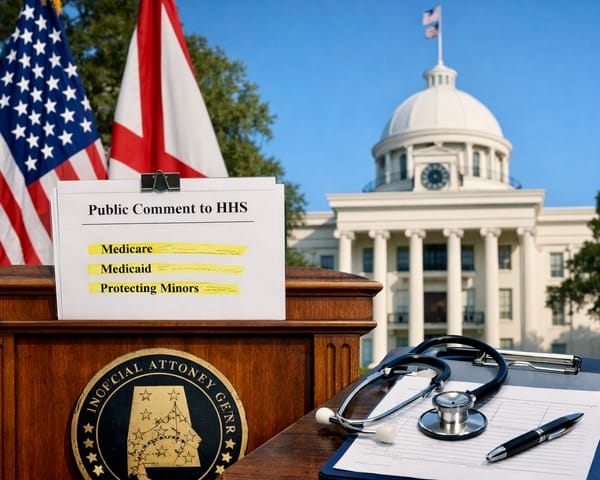Sen. Arthur Orr Considering Bill to Remove Candy, Soda from SNAP Benefits
Move would make SNAP more like long-running WIC program

Alabama State Senator Arthur Orr (R-Decatur) is considering filing legislation in the 2026 Alabama legislative session that would ban shoppers from using SNAP (Supplemental Nutrition Assistance Program) benefits from buying candy and soda. Orr argues the move would safeguard public health and save taxpayer money.
“Why should taxpayers be paying for sugary drinks and candy, particularly in a state that is one of the most obese in the country?” Orr told Alabama Daily News. He pointed out that around 39 percent of Alabamians are obese, citing CDC data.
Orr also stressed that many SNAP recipients also rely on Medicaid. “If someone is on SNAP, they’re probably on Medicaid,” he said. “Now we’re paying for Medicaid care for a problem we facilitated with SNAP and taxpayers are getting hit both ways…taxpayers shouldn’t be buying such things.”
To enact the ban, the bill directs the Alabama Department of Human Resources to seek a waiver from USDA Food and Nutrition Services—following the path of Idaho, Arkansas, and Utah, which secured similar approvals recently.
Orr emphasized that the legislation is not aimed at essential needs: “To help them with their needed necessities, and foods—not a problem. But, when you start saying, ‘I want a bunch of soft drinks, and I want a bunch of candy and I want someone else to pay for it,’ that’s ridiculous,” he said.
Alabama’s WIC (Women, Infants, and Children) program already operates under strict food‑list limits designed to promote nutrition. The State issues participants an approved‑foods brochure, covering items like whole-wheat bread, brown rice, 100% fruit juice, low- or nonfat milk, cheese, cereal, eggs, peanut butter, legumes, yogurt, infant formula, fruits and vegetables, and canned fish for breastfeeding moms. WIC vendors in Alabama are contractually required to keep these items in stock—such as a minimum variety of cereals, specific milk types, and fresh produce—during the benefit period. The program uses eWIC cards tied to these listings, allowing only approved items to be purchased.
In other words, Alabama already limits what SNAP-like benefits can buy—WIC has long enforced similar purchase restrictions focused specifically on wholesome, nutritionally balanced foods.
Alabama Arise, a nonprofit advocacy group, warns that Orr’s proposal could stigmatize low-income families and worsen their struggle with food insecurity. LaTrell Clifford Wood, their hunger policy advocate, noted that roughly 750,000 Alabamians participate in SNAP.
“Children and parents know a lot of the time and recognize, ‘okay, mommy has to pull out that blue card at the cash register’… the concern here is that we’re over‑policing people because of their income,” Wood said.
Wood also highlighted that narrow focus on sugar may miss the bigger issue—lack of better food options. “If we have concerns about the sugar content in our food, those concerns should be for everyone. And, they should not be based on somebody’s income level… because they are not the only ones that get diabetes, that are obese,” she explained.
Although Orr has yet to formally introduce the bill, he says several of his Senate colleagues have expressed support. The Alabama legislative session begins in January, and the proposal will likely spark debate over public health, fiscal responsibility, and whether SNAP rules should limit certain purchases.
The Alabama WIC-approved foods brochure is at this link.
WHNT Ch. 19 in Huntsville’s report may be seen HERE.




